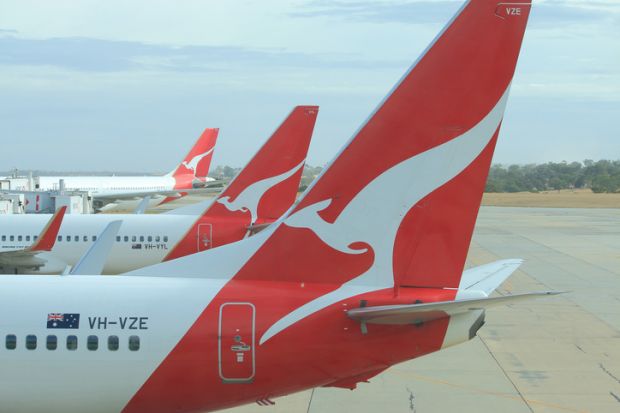Australian universities have failed to convince the public that their rapidly rising numbers of international students and staff are a good thing for the country, a conference heard.
Margaret Sheil, vice-chancellor of Queensland University of Technology, said that institutions “haven’t taken to the public that this is a good thing for Australia. We did not take the vast majority of the Australian public on that journey – or maybe we took that journey too fast,” Professor Sheil told Times Higher Education’s THE Live ANZ event.
Dawn Freshwater, vice-chancellor of the University of Auckland, and previously head of the University of Western Australia, agreed that it was important to convey the worth of globally minded institutions.
“There should be an understanding of the contribution that international students – and all students – make to the economy,” she said. “Our postgraduate students and the research they generate also contribute to the economy.”
Professor Freshwater added that there was “a lot of work to be done on how universities are perceived and the way we contribute as civil institutions”.
Other vice-chancellors who joined Professor Sheil and Professor Freshwater on a panel said that the coronavirus crisis offered an opportunity to demonstrate the value of internationally connected universities.
“In a world that’s failing to collaborate globally at a political level, we’re seeing new academic institutional collaborations in pretty unique and interesting ways,” said Rufus Black, vice-chancellor of the University of Tasmania. “Universities are part of what’s holding together a sustained global agenda. And if there’s an acceleration [in ties], it’s because we’re holding on to the values that are being knocked around in the geopolitical sphere.”
The panellists highlighted the benefits of greater use of online communication, open data, and joint research across borders.
“There’s a shared sense of urgency that is galvanising for researchers,” said David Lloyd, vice-chancellor of the University of South Australia. “With Covid being such a pressing need, everyone’s pressing their shoulder to the wheel. It’s about academics being more open to engagement than they were in the past.”
The university leaders were frank that they may not have communicated those values well to local communities, despite the fact that institutions have produced crucial environmental and medical research during crises, and are playing important roles in skilling workers in a tough job market.
“The opportunity is for universities to re-engage with communities around their social licence and to remind people of the tangible, really important contributions we make,” Professor Black said. “We haven’t been successful at having broad enough constituencies saying that universities are essential for our nation and survival.”
Panel members said that universities had to take a long-term view of connecting with society and sustaining their institutions.
“Higher education has endured through many crises,” Professor Freshwater said. “The issue is responding to the greater environment – whether there is a crisis or not – in a way that ensures that our workforce, students and stakeholders feel that we’re part of communities.
“In building a new strategy, it’s important to get over the fact that we’re not going to be responding to Covid for 10 years. We need big thinking, the big picture, of how we’re doing to deliver our core vision and mission,” she said.
Professor Lloyd said that his goal is to keep staff in jobs and students in classrooms. “When people look back, they won’t count the dollars, they’ll count the lives. What keeps me awake at night is the question: are we doing enough to keep our students and staff safe?”
Professor Black agreed, saying that “The question at the end of the day is not how much was your research funding, but how did your people fare?”
Register to continue
Why register?
- Registration is free and only takes a moment
- Once registered, you can read 3 articles a month
- Sign up for our newsletter
Subscribe
Or subscribe for unlimited access to:
- Unlimited access to news, views, insights & reviews
- Digital editions
- Digital access to THE’s university and college rankings analysis
Already registered or a current subscriber?









